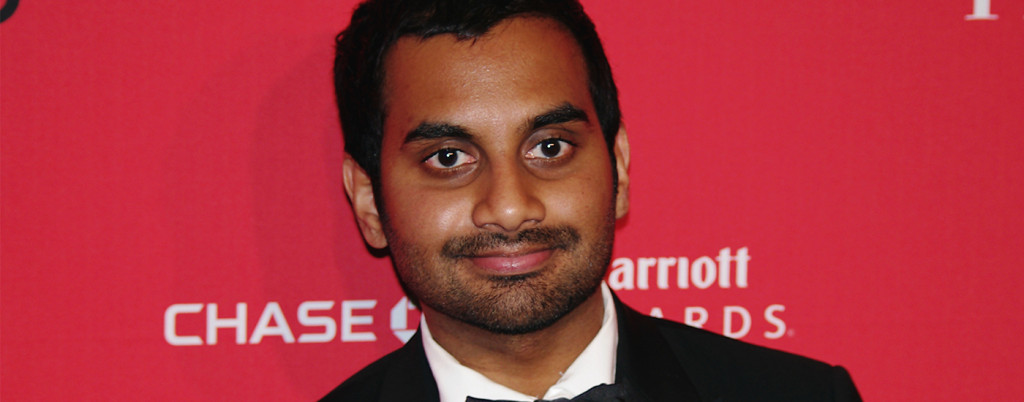If you’re not watching Master of None, you need to bail on your weekend plans and get your Netflix on.
The streaming service’s latest 10-episode original — a relatable, laugh out loud cultural satire — was released last Friday, Nov. 6. It was created and is written by Parks & Recreation‘s Aziz Ansari and Alan Yang.
Ansari stars as Dev Shah, a first generation American Indian living in New York. From the start, it feels a lot like Louie, Louis C.K.’s dramedy about the mundane daily life of a middle-aged New Yorker, but without all the broody darkness. In Master of None, Dev is a struggling 20-something actor, just looking to get by and have a good time with a few good friends. His friends are smart — minus the always doofy Eric Wareheim as Arnold — and surprisingly normal. They lead relatively normal lives in the city, working, drinking, sexing and meditating on the existential realities of being a quarter-lifer. Dev is Parks & Recreation‘s Tom Haverford reincarnated, but toned down, with much more interest in the welfare of his fellow humans than in capers and wacky business ventures.
Master of None has received critical attention this week, much of it centered on two episodes: “Parents” and “Indians on TV.” The episode titles are simple and direct, much like the dialogue. “Nashville” is about a trip to Nashville. “Ladies and Gentlemen” is about the different experiences of women and men.
In “Parents,” Dev and his friend Brian (Kelvin Yu) navigate their stilted relationships with their immigrant parents, who don’t often share stories about themselves, and thus have a hard time relating to their children, and vice versa. Ansari brought in his real life parents, Shoukath and Fatima Ansari to play his on-screen parents. While it’s obvious they’re not professional actors, the oddity of their performance makes it all the more intimately funny. It’s easy to imagine Ansari having these conversations with his parents in real life.
Dev’s parents seem authentically Indian, though I can’t speak to what that necessarily means, since I haven’t seen many authentically Indian folks on TV lately. Have you? Didn’t think so. In “Indians on TV,” Dev goes to an audition and is asked to perform an Indian accent. He refuses, protesting the stereotypical roles Indian actors are often forced into: the cab driver, the convenience store owner, the doctor, the scientist. The episode meditates, like many of us have lately, on the subject of race-based casting and the lack of opportunity for actors of color. While the discussion is subtle, Ansari’s position is not. As Slate’s Sharan Shetty wrote, “[Master of None‘s] treatment of Indian identity, and race in general, is central — and quietly radical. Instead of catering to an abstract ideal of representation, the show trades in the shaggy compromises and fluctuating truths of the minority experience in America.”
This week, Ansari posted a photo of himself with his dad on Facebook with a touching caption about his parents’ involvement and what it meant to him. It is just one of the ways Ansari has been narrowing the gap between his TV life and real life, pushing the questions he and his friends ask themselves on the show through the screen and into the real world. In addition to his Facebook post about his family, Ansari also and appeared on the Late Show with Stephen Colbert to discuss diversity on TV and penned a New York Times editorial.
The show’s targets don’t end with race. Ansari’s female characters are diverse and authentic, with feminist opinions and founded perspectives on the world. For a half hour show, it’s amazing how quickly characters are developed and become durable parts of the story. Denise (Lena Waithe), one of Dev’s core crew, is a butch black lesbian, but she is far from a “token” black friend, or a even a “token” lesbian. Instead of being the comic relief, or only talking about gay topics, she offers meaningful contributions to Ansari’s dialogue, as do all the female characters who cross the screen. Even Diana (Condola Rashad) and Marie (Grace Rex), two women acting with Dev in a home improvement store commercial, who appear in only one episode, have opinions and experiences that drive the narrative.
Rachel, Dev’s love interest (played by Noël Wells) is a smart, successful and hilarious woman who can hold her own in a conversation with the quippy Dev, firing back with the same speed and punch. At first, she comes off as so bubbly and sweet, she could easily be another manifestation of the dreaded manic pixie dream girl. But her fluffiness is not without a strong, multifaceted core. In episode six, “Ladies and Gentlemen,” she and Dev — with some help from Diana and Denise — discuss the sexist struggles that women deal with, some of which are completely invisible to men. When he brushes off her experience, she pushes to make him understand. Any feminist in a relationship with someone who hasn’t had much exposure to feminism — or, you know, the experience of being a woman — will feel a pang of recognition in their exchange. The episode was written and directed by women.
The series cuts fast and deep into issues that, in the age of the internet, when we’re all 140 characters from engaging with any topic, can sometimes seem over-talked and overblown. The close proximity Ansari has created between show and real millennial life makes exhausted discussions of catcalling, casting discrimination, and even dating etiquette seem fresh and immediate.
It’s clear that Ansari’s writing is splashed across every page of the script. Certain scenes play as if his voice is coming from every character’s body, slightly altered in pitch, but with the same élan. It could easily grow exhausting. Does anybody really want all of their friends to sound like Tom Haverford? But these characters are so diverse, and each cast member is so talented, full Haverfordization is not a problem. Ansari has already made leaps and bounds from his Parks & Rec days, and with a home run like this on his resume, he’s sure to keep running.
All 10 episodes of Master of None are now available for streaming on Netflix.
Watch the official trailer for the show below:
Bonus: Cameos and Switcheroos
Though one of the joys of Master of None is its cast of mostly new faces like Lena Waithe, Noël Wells, and Orange Is The New Black‘s Danielle Brooks, there are some exciting cameos to watch out for. Claire Danes and Noah Emmerich make appearances. So does Busta Rhymes. And if you pay close attention to a certain courtside basketball scene, you’ll spy Hilary Swank, Edie Falco and others. But look quickly, because in the next wide shot, the entire crowd is different. Sneaky, sneaky.



